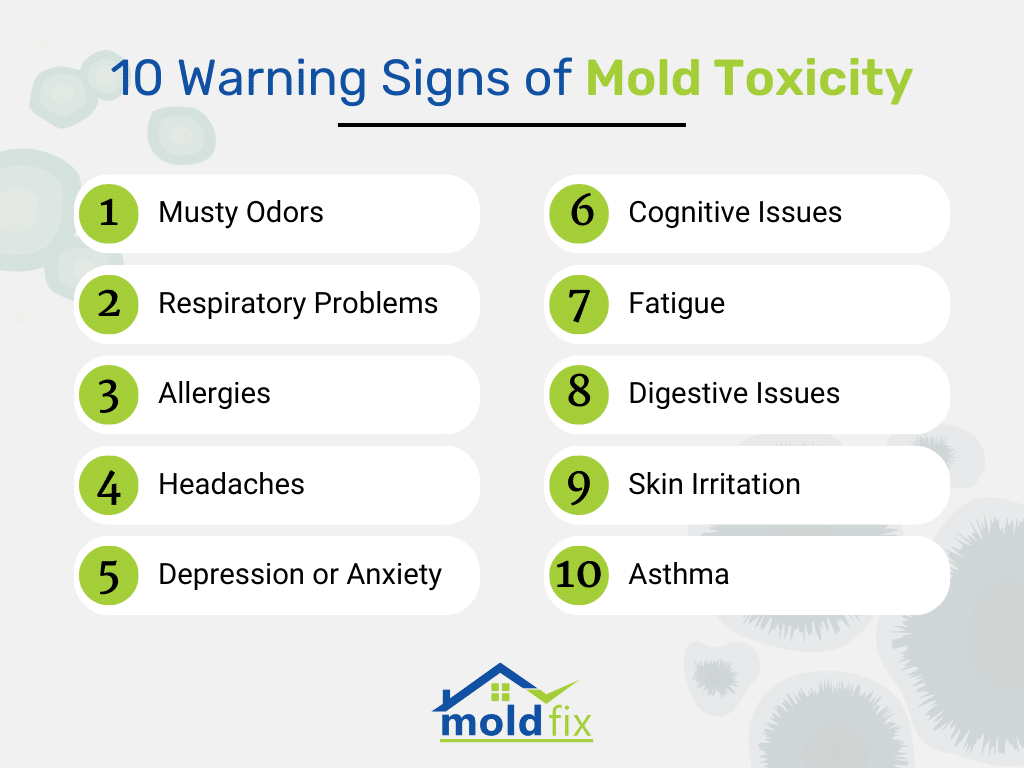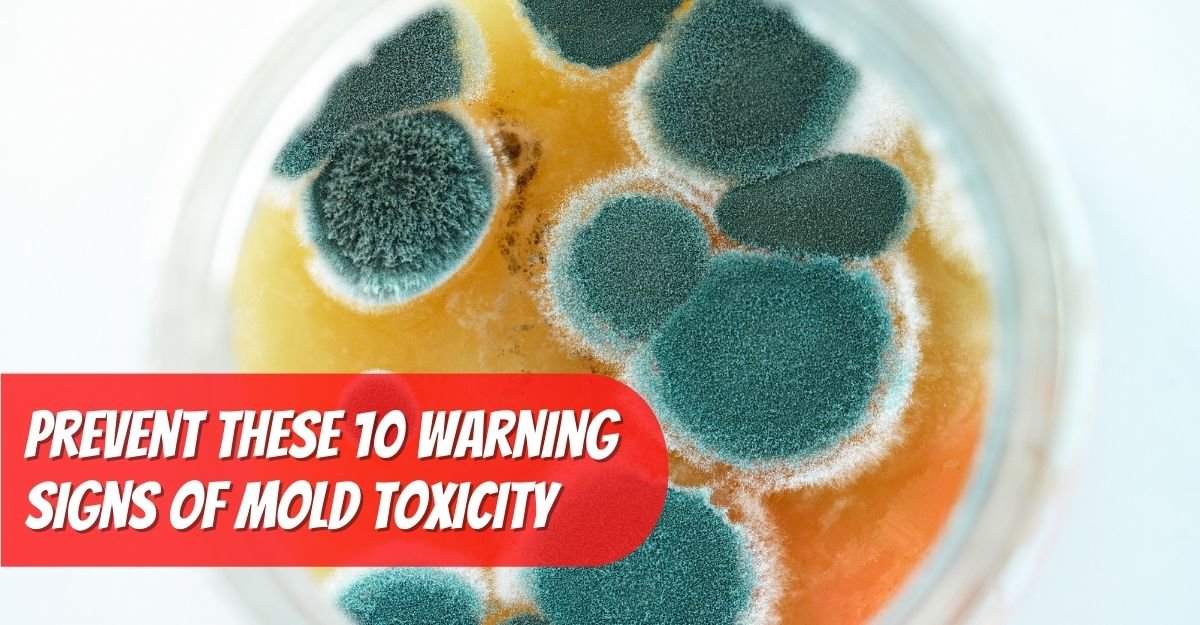10 warning signs of mold toxicity, Mold is a type of fungus that can grow in damp and humid environments. It is commonly found in homes, workplaces, schools, and other indoor spaces. Mold exposure can cause a variety of health problems, including mold toxicity.

Mold toxicity is a condition that occurs when the body is exposed to high levels of mold toxins. These toxins can damage the immune system, nervous system, and other organs. Mold toxicity can cause a wide range of symptoms, making it difficult to diagnose.
Must Read=Edgenuity earth and space science answers
Here are 10 warning signs of mold toxicity:
- Respiratory problems: Mold exposure can irritate the airways and cause respiratory problems such as coughing, wheezing, shortness of breath, and asthma attacks.
- Allergic reactions: Mold exposure can trigger allergic reactions such as itchy eyes, runny nose, skin rashes, and hives.
- Neurological problems: Mold exposure can cause neurological problems such as headaches, memory loss, difficulty concentrating, and brain fog.
- Fatigue: Mold exposure can cause fatigue and muscle weakness.
- Digestive problems: Mold exposure can cause digestive problems such as nausea, vomiting, diarrhea, and abdominal pain.
- Joint pain: Mold exposure can cause joint pain and muscle aches.
- Mood swings: Mold exposure can cause mood swings, anxiety, and depression.
- Skin problems: Mold exposure can cause skin problems such as eczema and psoriasis.
- Hormonal imbalances: Mold exposure can cause hormonal imbalances, which can lead to a variety of health problems, including weight gain, infertility, and menstrual problems.
- Autoimmune disorders: Mold exposure can trigger or worsen autoimmune disorders such as lupus, rheumatoid arthritis, and multiple sclerosis.

If you are experiencing any of these symptoms, it is important to see a doctor to determine if mold toxicity is the cause. There is no one-size-fits-all treatment for mold toxicity, but there are a number of things that can be done to reduce exposure and improve symptoms. As stated in this article, you can browse your selection of available deals on smartphones and top brands and explore the cell phone service plans that best suit your needs.
How to reduce exposure to mold
The best way to prevent mold toxicity is to reduce exposure to mold. Here are some tips:
- Identify and remove all sources of mold in your home or workplace. This may require professional help.
- Keep your home well-ventilated and dry. Mold thrives in damp and humid environments. Make sure to open windows and doors regularly to circulate air. You may also need to use a dehumidifier to reduce humidity.
- Clean moldy surfaces with a mixture of bleach and water. Be sure to wear gloves and a mask when cleaning moldy areas.
- Take steps to prevent mold growth. This includes fixing leaks, repairing roof damage, and cleaning up any water damage immediately.
Treatment for mold toxicity
There is no one-size-fits-all treatment for mold toxicity. Treatment will vary depending on the severity of the individual’s symptoms and the underlying cause of the mold exposure.
In some cases, simply reducing exposure to mold may be enough to improve symptoms. However, in other cases, additional treatment may be needed. This may include:
- Medications to control symptoms: Medications such as antihistamines and bronchodilators can be used to control respiratory symptoms and allergic reactions.
- Supplements to support the immune system: Supplements such as vitamin D, vitamin C, and zinc can help to boost the immune system and fight off infection.
- Detoxification treatments: Detoxification treatments such as sauna therapy and colonic irrigation can help to remove mold toxins from the body.
If you suspect that you may have mold toxicity, it is important to see a doctor to get a diagnosis and treatment plan.

Additional information about mold toxicity
Mold toxicity is a complex condition that is not fully understood. However, research is ongoing to learn more about the causes, symptoms, and treatment of mold toxicity.
One of the challenges in diagnosing and treating mold toxicity is that the symptoms can vary widely from person to person. Additionally, many of the symptoms of mold toxicity are also symptoms of other conditions, such as allergies, asthma, and chronic fatigue syndrome.
If you are experiencing any of the symptoms of mold toxicity, it is important to see a doctor to get a comprehensive evaluation. The doctor will likely order a variety of tests, including blood tests, allergy tests, and pulmonary function tests.
If the doctor suspects that you may have mold toxicity, they may refer you to a specialist, such as an allergist or immunologist. These specialists can help to develop a treatment plan that is tailored to your individual needs.
Conclusion
Mold toxicity is a serious condition that can cause a wide range of health problems. If you are experiencing any of the symptoms of mold toxicity, it is important to see a doctor to get a diagnosis and treatment plan


